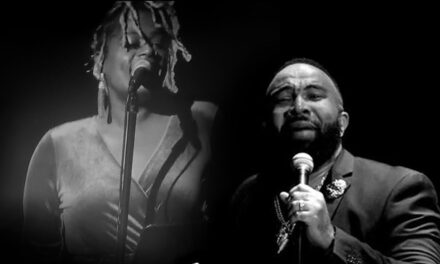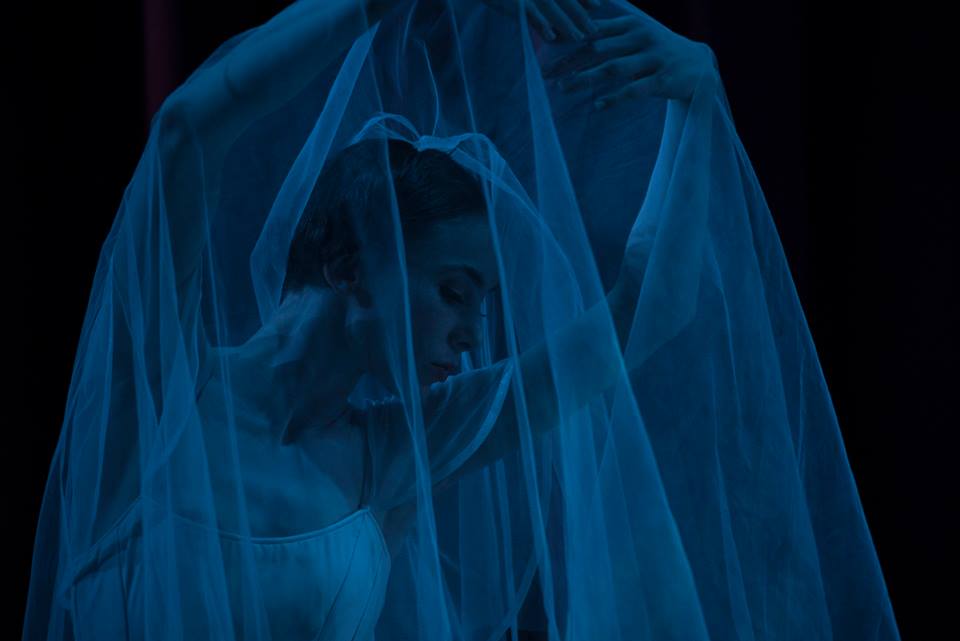 |
| Jonathan Majors and Andy Lucien in Cry Old Kingdom, part of the 37th Humana Festival of New American Plays. Photo by Alan Simons. |
Cry Old Kingdom
By Jeff Augustin
Directed by Tom Dugdale
Review by Rachel White
Copyright ©2013 by Rachel White. All rights reserved.
Edwin (Andy Lucien) is a painter pretending to be dead during the Duvalier regime in Haiti in 1964. Henri Marx (Jonathan Majors) is a young peasant. Henri is building a boat to escape to America. The two reach out to one another on a beach in Port Au Prince in this languid poetic drama that premiered Sunday night at the Humana Festival. Cry Old Kingdom is a play about the cost of war, and the choices war forces upon people.
By Jeff Augustin
Directed by Tom Dugdale
Review by Rachel White
Copyright ©2013 by Rachel White. All rights reserved.
Edwin (Andy Lucien) is a painter pretending to be dead during the Duvalier regime in Haiti in 1964. Henri Marx (Jonathan Majors) is a young peasant. Henri is building a boat to escape to America. The two reach out to one another on a beach in Port Au Prince in this languid poetic drama that premiered Sunday night at the Humana Festival. Cry Old Kingdom is a play about the cost of war, and the choices war forces upon people.
When Edwin sees Henri on the beach he wants to paint him, but Henri is fearful. Henri agrees to be painted only if Edwin will agree not to paint his face. If his face is painted, he fears he might be caught by the regime. Edwin agrees, even showing Henri a better way to build his boat.
The scenes between Edwin and Henri take place on a sandy shore. There is real sand, or what looks like sand. Set designer Daniel Zimmerman keeps the rest of the scenery relatively impressionistic and minimalist, which allows the imagination to fill in the gaps. Director Tom Dugdale uses space here in a very specific way. We see Edwin call to Henri from afar, as though across the sand, and the minimalism is effective in that it evokes the wide expanse of a beach.
The scenes shift back and forth from the beach to Edwin’s home. We soon learn that Edwin’s relationship with his wife is troubled and has been for a long time. Edwin’s wife Judith (Natalie Paul) is anxious to be a part of the revolution against Duvalier, which is stirring outside. She brings home mangos and avocados from the market, and Edwin doesn’t want to eat them because of where they came from. But deeper problems exist between them: Edwin has not been able to touch his wife or even show her affection since they have been in hiding.
The home scenes are dimly lit with a single hanging light bulb. There is a table dividing Judith and Edwin. A radio sitting on the table plays a message on a loop where the revolutionaries have taken over the airways. Again, the use of space and minimalism is notable. The single table and set of chairs make the space feel large and cavernous, reflecting the space in the relationship.
The performances are subtle, with Edwin vacillating from stoic at home to increasingly excitable in the presence of Henri. Jonathan Majors plays Henri with hurt and innocence that makes the final blows of the play more touching. Paul as Judith plays well off Lucien’s stoicism, injecting her role with passion, anger and conviction.
Something about the set and the structure of the play gives the viewer a sense that this island is an oasis amid chaos. The scenes between Edwin and Henri are almost serene, despite the fact that there is so much violence around them. The scenes between Edwin and Judith are more strained, but Judith is the source of conflict, the reactive one while Edwin keeps his emotions tightly to himself. She wants to fight, and she wants sex. Edwin seems unable to consent to either of these as though he would prefer silence. Scenes begin in the middle of arguments, and play out through intimate moments between the characters. Eventually we begin to feel the relationship crumbling as the revolution crumbles outside.
There are some issues with this piece. It doesn’t move quickly, and the drama seems to have either happened before or is happening outside the sanctuary of the island. This can make some of the beach scenes feel slow. At other times, Edwin’s emotions, particularly when it comes to his wife, seem too internalized, making the emotional line between them difficult to follow.
There is a beautiful dream scene near the end of the play where Henri comes to Judith wearing a bird mask and Judith recalls the dream to Edwin. It’s a nice moment and one that pushes the play from the semi-realistic into the territory of the surreal.
Cry, Old Kingdom
Part of the 37th Humana Festival of New American Plays
March 7 – April 7, 2013
Actors Theatre of Louisville
Bingham Theatre
316 West Main Street
Louisville, KY 40202
(502) 584-1205



